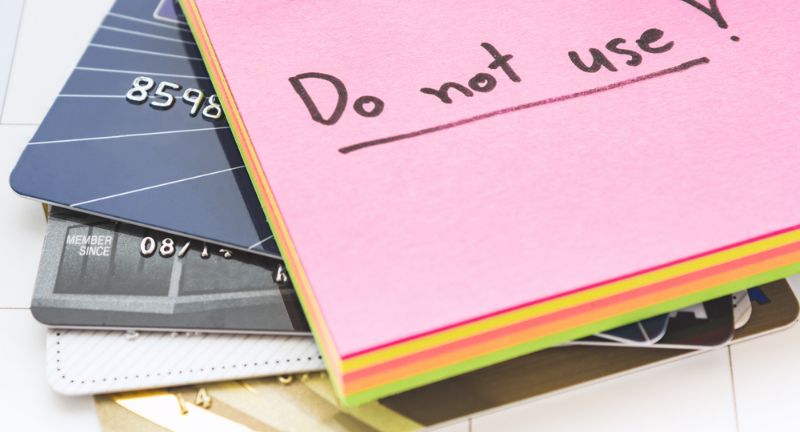LIFESTYLE
25 Proven Strategies to Curb Compulsive Shopping
Published
7 months agoon

Shutterstock
Compulsive shopping can lead to financial strain, clutter, and emotional stress. However, there are many strategies to help combat this behavior and promote healthier habits. You can take control of your spending habits by recognizing triggers, setting clear goals, and seeking support. In this article, we will explore 25 effective ways to tackle compulsive shopping. These methods will help you develop better financial management skills and create a more balanced lifestyle.
Recognize the Problem

Shutterstock
The first step is acknowledging that compulsive shopping is an issue. Self-awareness is crucial for change, as it allows you to identify and understand your behavior. By recognizing the problem, you can begin to take steps to address it. Accepting that you have a problem is empowering and opens the door to finding solutions.
Set a Budget

Shutterstock
Create a monthly budget that outlines your income, expenses, and savings goals. A clear budget helps you see where your money is going and prioritize your spending. Stick to this budget strictly to avoid unnecessary purchases. By having a financial plan, you can manage your funds more effectively and reduce impulsive spending.
Use Cash Instead of Cards

Shutterstock
Paying with cash makes you more aware of your spending compared to using credit or debit cards. The physical act of handing over cash can make you think twice about a purchase. It limits you to the amount of money you have on hand, preventing overspending. This simple change can help you develop better spending habits and avoid debt.
Make a Shopping List

Shutterstock
Before going shopping, list the items you need and commit to buying only those items. A shopping list keeps you focused and reduces the temptation to buy things on impulse. It also helps you stay within your budget and avoid unnecessary purchases. By planning ahead, you can make more thoughtful and intentional buying decisions.
Avoid Temptation

Shutterstock
Stay away from stores or online shopping sites that trigger your urge to shop. Identify your triggers and make a conscious effort to avoid them. This might mean taking a different route to work or unfollowing certain brands on social media. By reducing your exposure to temptation, you can better control your shopping habits.
Wait Before Purchasing

Shutterstock
Implement a waiting period before making a purchase. Give yourself 24 hours or even a week to decide if you really need the item. This pause allows you to evaluate the necessity and value of the potential purchase. Often, you’ll find that the urge to buy fades, and you can make more rational decisions.
Track Your Spending

Shutterstock
Keep a detailed record of all your purchases to see where your money goes and identify patterns. This helps you understand your spending habits and areas where you can cut back. By tracking your expenses, you become more conscious of your financial behavior. It also allows you to set realistic goals and monitor your progress over time.
Unsubscribe from Emails

Shutterstock
Unsubscribe from promotional emails and newsletters that tempt you with sales and special offers. These emails are designed to trigger impulsive buying behavior. By reducing the number of marketing messages you receive, you can lessen the temptation to shop. This small step can significantly decrease your exposure to unnecessary spending opportunities.
Limit Social Media Use

Shutterstock
Social media can influence shopping behavior through targeted ads and influencer promotions. Limit your exposure by spending less time on platforms that encourage consumerism. Consider unfollowing accounts that promote excessive shopping. By curating your social media feed, you can create a healthier online environment that supports your financial goals.
Seek Support

Shutterstock
Join a support group or talk to friends and family about your shopping habits. Sharing your struggle can provide emotional support and accountability. Others who understand your situation can offer valuable advice and encouragement. Together, you can work towards developing healthier spending habits and overcoming compulsive shopping.
Engage in Alternative Activities

Shutterstock
Find hobbies or activities that you enjoy and can do instead of shopping. Engaging in alternative activities can provide a sense of fulfillment and distraction from the urge to shop. Consider activities like reading, exercising, or crafting that bring joy and satisfaction. By filling your time with meaningful pursuits, you can reduce the frequency of compulsive shopping.
Practice Mindfulness

Shutterstock
Be mindful of your emotions and triggers that lead to shopping. Practice mindfulness techniques to manage stress and anxiety. By staying present and aware, you can better control impulsive behaviors. Mindfulness can help you recognize when you’re using shopping as a coping mechanism and encourage healthier ways to handle emotions.
Set Financial Goals

Shutterstock
Focus on long-term financial goals like saving for a vacation, a house, or retirement. Setting clear goals can motivate you to curb impulsive spending. By working towards something meaningful, you can redirect your energy and resources. These goals provide a sense of purpose and help you make more deliberate financial decisions.
Organize Your Space

Shutterstock
Declutter your home and organize your belongings. Seeing what you already have can reduce the urge to buy more. An organized space can also bring a sense of calm and control. By appreciating and using what you own, you can minimize the desire for new purchases and avoid unnecessary accumulation.
Avoid Shopping as Entertainment

Shutterstock
Find other forms of entertainment that don’t involve spending money. Shopping as a pastime can lead to unnecessary purchases and clutter. Explore activities like outdoor sports, reading, or free community events. By finding enjoyable alternatives, you can break the habit of shopping for fun and discover new ways to entertain yourself.
Plan Your Purchases

Shutterstock
Plan for big purchases and save up for them instead of buying on impulse. This approach ensures you have the necessary funds and reduces financial stress. It also gives you time to research and find the best options. Planning your purchases makes you more intentional and helps you prioritize what you truly need.
Use Shopping Apps Wisely

Shutterstock
If you must shop online, use apps that track prices and offer discounts, but only for items you need. These tools can help you find the best deals and save money. However, be cautious not to browse aimlessly. Use shopping apps with a clear purpose and resist the temptation to buy unnecessary items just because they are on sale.
Identify Triggers

Shutterstock
Understand what triggers your shopping behavior, whether it’s boredom, stress, or loneliness. Identifying these triggers is the first step to addressing them. Find healthier ways to cope, such as exercising, meditating, or talking to a friend. By managing your triggers, you can reduce the frequency of compulsive shopping episodes.
Limit Credit Card Access

Shutterstock
Keep only one credit card for emergencies and leave it at home when you go out. Limiting access to credit cards can help you avoid impulsive purchases. It forces you to rely on cash or debit, making you more mindful of your spending. This simple strategy can prevent debt and encourage better financial management.
Seek Professional Help

Shutterstock
Consider therapy or counseling to address the underlying emotional issues related to compulsive shopping. Professional help can provide you with strategies and tools to manage your behavior. Therapy can also uncover deeper issues that contribute to your shopping habits. Seeking help is a proactive step towards long-term change and emotional well-being.
Practice Gratitude

Shutterstock
Regularly remind yourself of what you have and express gratitude for it. Practicing gratitude can reduce the desire for more possessions. It helps you appreciate the value of what you already own. By focusing on gratitude, you can shift your mindset away from consumerism and towards contentment.
Use the 10-10-10 Rule

Shutterstock
Before making a purchase, ask yourself how you will feel about it in 10 minutes, 10 months, and 10 years. This rule helps you consider the long-term impact of your decisions. It encourages you to think beyond immediate gratification. By evaluating the future consequences, you can make more thoughtful and intentional purchases.
Shop with a Friend

Shutterstock
Bring a trusted friend or family member who can help you stick to your shopping list and avoid impulsive purchases. Having someone with you can provide accountability and support. They can remind you of your goals and help you make more rational decisions. Shopping with a friend can also make the experience more enjoyable and less focused on spending.
Reward Yourself Wisely

Shutterstock
Find non-material ways to reward yourself, such as treating yourself to a favorite activity or meal. Rewards don’t always have to involve spending money. By choosing experiences over things, you can create lasting memories and satisfaction. This approach helps you break the cycle of shopping for happiness and find joy in other areas of life.
Educate Yourself

Shutterstock
Learn about the impact of consumerism on the environment and society. This knowledge can inspire you to make more conscious choices. Understanding the broader effects of your shopping habits can motivate you to change. By educating yourself, you can become a more responsible and mindful consumer.
Conclusion

Shutterstock
Taking control of compulsive shopping is a journey that requires dedication and mindfulness. By implementing these 25 strategies, you can develop healthier spending habits and achieve greater financial stability. Remember, it’s important to be patient with yourself as you make these changes. Celebrate your progress and continue to seek support when needed. With persistence, you can overcome compulsive shopping and enjoy a more balanced, fulfilling life.
Related Topics:

More From Lifestylogy
-


Heres Why You Should Never Skip Out On Your Hair
-


27 Books That Everyone Should Read At Least Once In…
-


30 Fruits And Vegetables And How To Optimize Nutrition While…
-


25 Ways To Incorporate More Magnesium Into Your Diet
-


29 of the Strangest Fears That People Actually Have
-


27 Fruits That Are Loaded With Nutritional Value
-


25 Flowers That Create The Most Beautiful And Long-Lasting Bouquets
-


How To Fall Asleep Fast
-


30 Essential Vitamins and Minerals Your Body Needs